Fortunately, X-Men: Days of Future Past looks set to change all of this. It is a sequel to both the original trilogy of films and its prequel X-Men: First Class, using time travel in order to utilize both casts and continue the story of each. It is rumored to be one of the most expensive films ever produced, and sees the return of original director Peter Singer. I am crossing my fingers that this film will be the one that lets the X-Men reclaim their roles as the definitive cinema superheroes. So on the eve of X-Men’s next leap into the future, now seems like a good time to look back and reflect upon where the franchise tread in the past.
*And by the way, MAJOR SPOILERS for some of the past films follow. You have been warned.*
X-Men Origins: Wolverine (2009)
Beyond that, the film falls flat by relying on a whole new cast of characters. While this in and of itself wouldn’t be a bad thing (although seeing will.i.am as a mutant is still a bit odd), it completely fails to make us care about these characters. While the villains in the previous movies were interesting, fleshed-out, and had compelling reasons behind their actions, these bad guys just seem like psychopaths with no reason for any of their actions. Plus, it’s difficult to care about what happens to characters who only get about 10 minutes of screen-time before they get brutally murdered.
Add to that the notoriously sub-par special-effects and you get a generic action movie out of what could have been a really cool origin story for one of the coolest superheroes. Although, you may have noticed earlier when I said this movie was the “least good” of the franchise. I hesitate to call it bad, as it can still be thoroughly enjoyed as long as all you expect out of it is Hugh Jackman running around, blowing things up, and stabbing people in the face. Just don’t think you’re watching an X-Men film.
X-Men: The Last Stand (2006)
Much of this can likely be attributed to the director. While Bryan Singer was at the helm of the first two installments, scheduling conflicts prevented him from continuing with the franchise. So instead, Brett Ratner was hired, whose primary experience was the Rush Hour series. Predictably, Last Stand’s plot focused far more on action and explosions than on the drama, character development, and social commentary that made Singer’s films so good. Combined with a sadly lacking script, it’s no wonder this turned out to be one of the weaker links in the franchise, and its less-than-expected box office revenue prevented another major installment in the series for years afterwards.
All that being said, this is also not a bad movie. While having a particularly weak plot and lacking character and heart compared to the better installments of the series, X-Men: The Last Stand is still an entertaining superhero action movie. That puts it at least on par with anything Marvel has released recently. With any luck, Bryan Singer’s return in Days of Future Past will resurrect the charm and soul that this one was sadly lacking (and be a better resurrection than Jean Grey’s, hopefully).
The Wolverine (2013)
This film is the second attempt at a Wolverine stand-alone film, and is much better than the previous attempt. There are two keys to this, the first being the portrayal of Logan shown in this film. While previous films showed him as an awesome, bad-ass mutant taking names and kicking ass, this film shows a man haunted by his memories and what he has lost. At the start of the film, Logan denounced the X-Men and his life as a soldier. He gave up fighting and bloodshed, and when he is forced to fight again you can see how troubled and reluctant he is to do so. He is also tormented by his memories of Jean Grey, who appears to him in visions throughout the film as a personification of his doubt and regret. Logan coming to terms with his guilt over Jean’s death is a major mark of his character development and helps to advance him beyond the image of the killing machine he developed in the previous films. Instead of playing a cool character, Hugh Jackman plays a broken one, showing a side of Logan we have never seen before and giving back the soul he lost in his previous solo film.
The second reason this film succeeds is the way that the plotline was moved to Japan without making it into a gimmick. Too often, a film franchise will place the plot of one of their films in a foreign country in order to make it exotic and interesting without actually using that setting as anything more than a different backdrop. However, The Wolverine does not do this. The film actually went out of its way to make all the cast (bar two) actually Japanese, and much of the dialogue is in Japanese with English subtitles. Further, while they do use the standard tropes associated with Japan such as ninja and samurai, they actually fit into the film and feel relevant rather than cheesy. Although the last part of the movie is pretty much just generic action, the setting change is actually interesting, relevant, and adds meat to what could have been just another generic action film. Between that and showing a compelling side to Logan, The Wolverine is basically everything that Origins: Wolverine should have been but wasn't.
X-Men: First Class (2011)
Out of all the X-Men spin-off films, this is the one that feels most like an X-Men film. Having a team of mutants complete with slightly goofy spandex costumes is key, because instead of feeling like a generic action movie, it actually feels like an X-Men movie. Even better, this film returns to the social commentary about intolerance and discrimination that made the earlier movies so compelling and relevant, complete with an extended version of the Nazi concentration camp scene from the original film that beautifully (or horribly, rather) shows the moment of awakening of Erik’s powers.
Here's what we're going to do. I'm going to count to three... and you're going to move the coin.
In addition, this movie has one of the best casts of all the films. James McAvoy and Michael Fassbender play young Xavier and Lehnsherr respectively, and they both do an absolutely stunning job. McAvoy wonderfully shows how Xavier slowly transitions from a carefree university student into the serious leader he will later become.
Charles Xavier: You have a chance to become a part of something much bigger than yourself!
And Fassbender superbly shows how the tragic events that Lehnsherr went through as a child compared to Charles created incompatible world views between them, and how this led them to oppose each other as they walk different paths.
Charles Xavier: Erik, you said yourself, we're the better man. This is the time to prove it. There are thousands of men on those ships - good, honest, innocent men! They're just following orders-
Erik Lehnsherr: I've been at the mercy of men "just following orders". Never again.
Between the two of them and Jennifer Lawrence, who plays a much younger and more innocent Mystique, X-Men: First Class acts as a superb prequel to the original trilogy, and shows just how good superhero origin stories can be when they are done right.
Plus, this movie contains one the greatest cameos in cinematic history.
X-Men (2000)
With its dark and realistic tone, serious acting chops (Hugh Jackman, Halle Berry, Famke Jansenn, Patrick Stewart, and Ian McKellen), and underlying themes of prejudice, intolerance, and discrimination, X-Men not only saved its fellow superheroes from cinematic oblivion, but it was also the very first time that a movie of its kind was actually taken seriously by mainstream cinema. I’ll give you a hint of exactly when that happened… it started with a scene in a Nazi concentration camp…
It is because of this that X-Men is one of the relatively few superhero film franchises that I enjoy. It uses its heroes and costumes and powers to talk about real issues affecting our world, grounding its fantasy in concrete reality and using it to say something relevant, as all good fantasy fiction does. It is not a mindless summer blockbuster (see Origins: Wolverine and The Last Stand, above), relying solely on fights and thrills to keep the audience entertained (although this film does have those in abundance). I think I can safely say that X-Men is the only superhero film franchise with a relevant and important overarching theme, and this is the film that started it all.
X2 (2003)
The part of these films that I like the most is the social commentary and use of mutation as an allegory for every human trait that makes one an outcast or a minority. This is the film where these allegories have the most relevance, as the villain (Colonel William Stryker) is a man who wants to identify and eliminate every single mutant on the planet. While the villains of the other films have some redeeming characteristics, Stryker actually wants to commit genocide. However, rather than making him a flat caricature without any depth, the film actually portrays him as a full character, despite his absolutely abhorrent actions.
Not only that, but director Bryan Singer (an openly gay man) went out of his way to use the social commentary as a story-telling device. One of my favorite scenes has the young mutant Bobby “Iceman” Drake “come out” to his family about being a mutant. The response was close to home for many people:
Mrs. Drake: Bobby, have you tried... not being a mutant?
Later in the film, the two characters Mystique and Nightcrawler are discussing how their respective powers and appearance made them outcasts among ordinary human society, and we get this gem:
Nightcrawler: Then why not stay in disguise all the time? You know— look like everyone else?
Mystique: Because we shouldn't have to.
This is what makes these films so great. As cool as action and superpowers and heroes and villains are, they really don’t mean anything if they are merely mindless entertainment. This is a trap that many superhero films fall into. Meaning creates the line separating fun summer blockbusters from real cinema. Using fantasy as a tool to tell a story about the real world paradoxically makes the best fantasy, and X-Men takes the cake at that. What could have become just another series of mindless action movies has become a story about outcasts, fitting in, prejudice, and being who we are. It just goes to show that mutants are just as human as the rest of us.
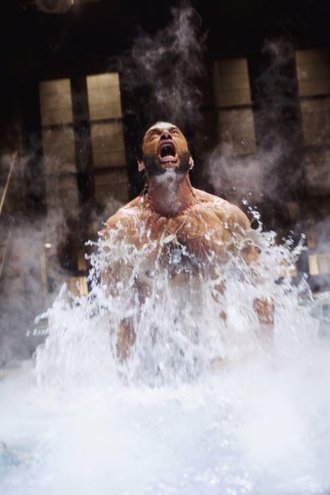
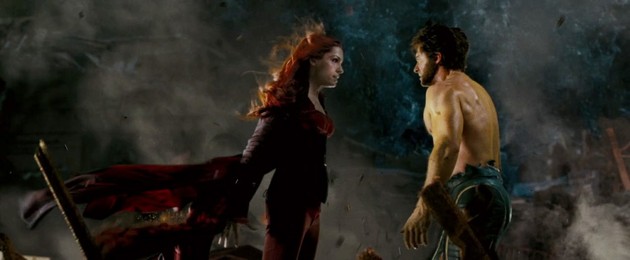
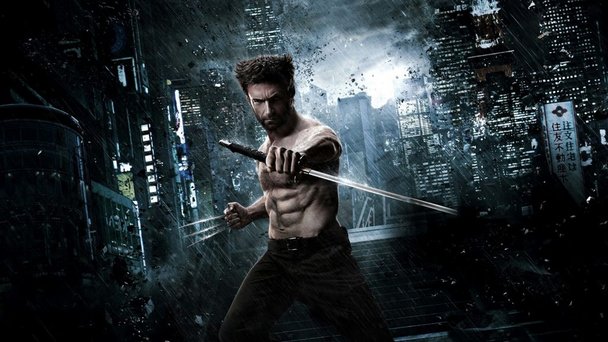
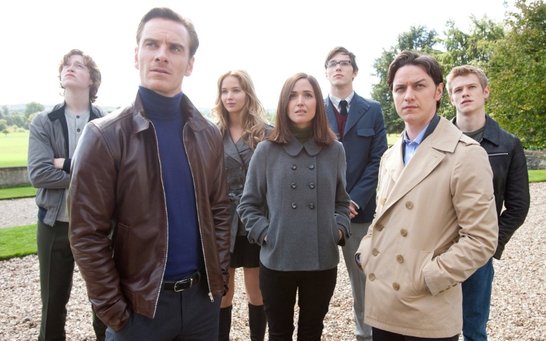
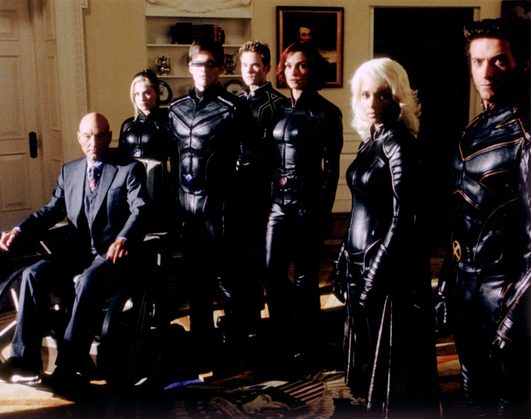
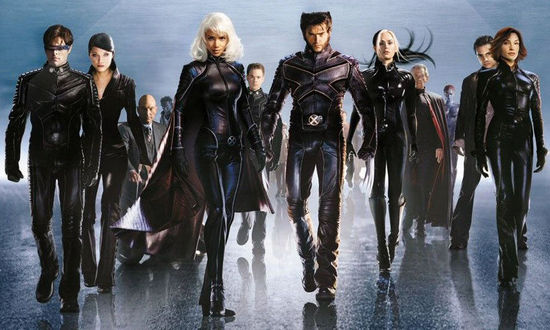
 RSS Feed
RSS Feed
